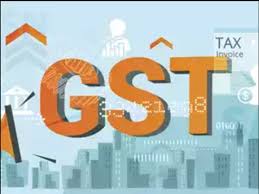EMPLOYEES STOCK OPTION PLAN (ESOP)
Meaning
Employees Stock Option Plan (ESOP) is the option given to the directors, permanent employees or officers of the company or of its holding or subsidiary company, the right to purchase or benefit or subscribe for the shares of the company at a predetermined price on a future date.
Section 62(1) (b) of The Companies’ Act, 2013 and Rule 12 of Companies (Share Capital and Debentures) Rules, 2014 governs the issuance of ESOP.
ESOPs cannot be issued to:
1. An employee who is a promoter or a person belonging to the promoter group; or
2. A director, who alone or through his relative or body corporate, holds more than 10 % of the outstanding equity shares of the company.
Provided that, in case of a startup company the above mentioned 2 conditions shall not apply up to 10 years from the date of its incorporation.
Rule 12(1):
As per Rule 12(1) Special Resolution to be passed before providing employees stock option plan and
As per Rule 12(2) the company shall make the following specified disclosures in the explanatory statement annexed to the notice for passing of the resolution:
a) Total number of stock options granted;
b) Classes of Employees entitled to participate in Employees Stock Option Scheme;
c) Appraisal process for determining eligibility of Employees to the Employees Stock Option Scheme;
d) Requirements and period of vesting;
e) Maximum period within which options shall be vested;
f) Exercise price or formula for arriving at the same;
g) Exercise period and process of exercise;
h) Lock-in-period, if any;
i) Maximum number of options to be granted per employee and in aggregate;
j) Method which company shall use to value its options;
k) Conditions under which option vested in employees may lapse;
l) the specified time period within which the employee shall exercise the vested options in the event of a proposed termination of employment or resignation of employee;
m) a statement to the effect that the company shall comply with the applicable accounting standards.
Rule 12(3):
The Company will have the freedom to determine the exercise price in conformity with the applicable accounting policies, if any.
Rule 12(6): Conditions for ESOP
(a) There shall be a minimum period of 1 Year Gap between the grant of options and vesting of option.
(b) The Company shall have the freedom to specify the lock-in period for the shares issued pursuant to exercise of option.
(c) The Employees shall not have right to receive any dividend or enjoy the benefits of a shareholder in respect of option granted to them, until shares are issued on exercise of option.
Rule 12(8): Conditions for transfer of ESOP
a) The option granted shall not be transferable to any other person,
b) The option shall not be pledged, hypothecated, mortgaged or otherwise encumbered or alienated in any other manner.
c) No person other than employees to whom option is granted shall be entitled to exercise the option; except
On the event of death of an employee while in employment, all the options granted to him till such date shall vest in the legal heirs or nominees of the deceased employee.
d) In case the employee suffers a permanent incapacity, all the options granted shall vest on the date of permanent incapacitation.
e) On resignation or termination of employment, all options not vested by the employee as on that day shall expire.
Let us now understand the procedure for the issue of ESOPs
1. We need to draft an ESOP Scheme. It is a document containing various clauses including:
a) Administration of ESOP.
b) Size of equity pool.
c) Employee’s cessation.
The Draft of ESOP Scheme is to be approved by the Board of Directors in the Board Meeting.
2. As said earlier, ESOP Scheme has to be approved by shareholders in EGM via passing of Special Resolution.
3. The Board Resolution and Special Resolution passed has to be filed with Registrar of Companies (ROC) in Form MGT -14.
4. After Approval of ESOP Scheme, stock options will be granted to the elgible employees.
At the time of exercising the options, Form PAS-3 is to be filed with Registrar of Companies.
A Register of ESOP is to be maintained via Form SH -6.
Beneficial for Employees:
With ESOPs, an employee gets the benefit of acquiring the shares of company at the nominal rate, and sells them and make a profit.
Through ESOPs, Employees directly benefit from the success of the company as they get a share of the Company.
Annual General Meeting
Under Section 96, The company needs to conduct an Annual General Meeting (AGM) every year with a gap not exceeding 15 months between any 2 AGM. The Annual General Meetings need to be presided over with a minimum attendance of 1/3rd directors or a minimum of 2, whichever is higher.
Tax Implications:
The value of ESOPs allotted shall be treated as perquisites under Section 17 read with Rule 3 of Income Tax Act, 1961 when the employee has exercised the option.
The shares shall be valued at fair market value as determined by the Registered Valuer.
As per Rule 3,
If the company is listed in a recognized stock exchange, the fair market value shall be average of opening and closing price of the share on the recognized stock exchange.
If the company is not listed in a recognized stock exchange, the fair market value shall be as determined by merchant banker on the specified date.
ESOPs shall be taxed at:
Fair Value as determined by the Registered Valuer ***
Less: The value at which shares was issued to the employees ***
Budget 2020 amendment – From the FY 2020-21, an employee receiving ESOPs from an eligible start-up need not pay tax in the year of exercising the option. The TDS on the ‘perquisite’ stands deferred to earlier of the following events
when the employee has exercised the option, basically agreed to buy; the difference between the FMV (on exercise date) and exercise price is taxed as perquisite.
• Expiry of five years from the year of allotment of ESOPs
• Date of sale of the ESOPs by the employee
• Date of termination of employment








